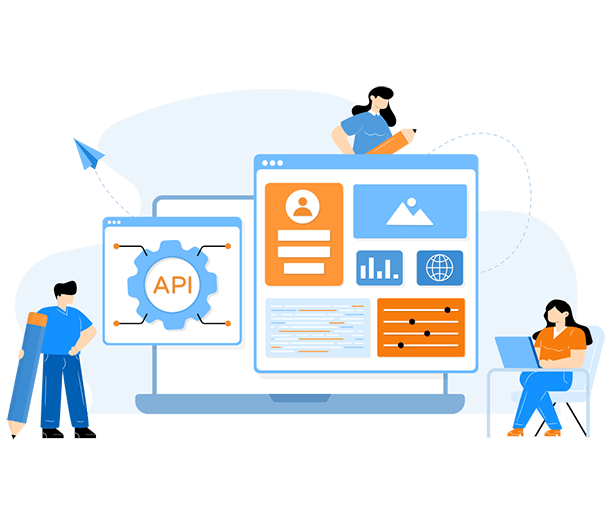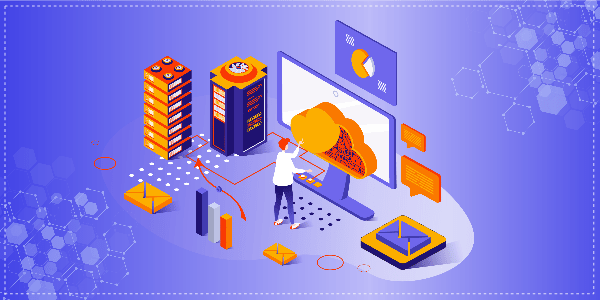
The Importance of Data Analytics
in Organizational Processes
Data analytics has taken the world by storm in the last few years. The field has penetrated numerous fields such as advertising, manufacturing, automobile, healthcare, and almost every other sector. After all, everything is data, and all data can be analyzed to fulfill the goals of any industry.
As one of the most versatile IT fields with countless use-cases, the applications of data analytics are vast and far-reaching. In this article, I’ll discuss the significance of data analytics in the processes and workflows of companies. So, here’s everything you need to know about how data analytics helps with business processes.
How Data Analytics Enhances Business Processes
Data analytics have elevated business processes by increasing their efficiency, accuracy, and decreasing their costs. When combined with technologies such as cloud and AI, data analytics enables companies to enhance numerous processes and operations as follows:
Business Process Management (BPM)
With data-driven tools offered by companies such as Decision Minds, any company can streamline various processes and workflows. Traditional BPM tools lack the intuition or the ever-evolving capability that tools such as cloud analytics, AI & ML, process automation, etc., possess. Overall, the tools can enhance the operations across various departments or units in a company, thus improving how a company functions holistically.

Big Data Analytics in Marketing
Companies can collect data about customers, analyze it for patterns, and derive insights with data analytics. These insights help understand customer behavior and, when combined with AI, will also enable the company to predict it.
Thus, companies can follow a data-driven approach to marketing and increase their accuracy when it comes to customer targeting, lead generation, and conversion. Furthermore, companies can also provide mass personalization for different kinds of customers based on the cohorts and categories they are divided into.
Cybersecurity and Risk Management
Data analytics and machine learning solutions can monitor the organization's network activity at all times. The systems process current and historical data to understand the normal flow of activities. For instance, if the normal login time for employees is at, say, 10 AM, and if by chance the system detects a login at 3 AM, it will immediately flag it to the IT department.
This way, cybersecurity can be maintained, and when a threat is detected, it immediately follows a predetermined set of actionable steps to mitigate the risks and prevent an attack. Furthermore, the analytics system can also predict which departments have the highest risks of facing a cyber attack. This means companies can focus more on strengthening their security measures in those departments.
Identification of New Products/Services/Revenue Streams
Cloud analytics can help companies focused on D2C products and services to predict upcoming trends that will take over their industry. Based on these predictions, companies can create new products or services and be ready to launch when the trend kicks off.
This will give businesses the first-movers’ advantage, and they can cater to the customers' needs at that time. Besides this, analytical tools can also identify newer revenue streams that are currently untapped and help the company generate more business.
Cost Reduction and Efficiency
Data analytics can help companies reduce costs across all departments. This is done by identifying gaps and loopholes to deal with wastage or inefficient processes. Based on this, the tools can be leveraged to create a faster, efficient, and dynamic infrastructure in order to save costs. Processes also become much quicker as everything is driven by tools.
For instance, if there’s a gap in the supply chain process and too much money is being spent on an intermediary, the analytics tool can identify this and help eliminate that intermediary to save costs.
Increased Productivity and Competitive Edge
Analytics, along with automation tools, can perform tasks much faster than people. This means employees will no longer have to spend their time on menial jobs and can focus on the core business. Besides this, analytics can also help a company derive insights into the strategies that its competitors are using and applying.
With this, the company can adopt those strategies or leverage analytical tools to find the limitations of those strategies in order to formulate better ones. Thus, organizations can outperform and overtake their competition with these robust solutions that essentially leverage data to enhance their business.


Automation of Decision-making Processes
Data analytics can be used in decision-making processes as well. For example, data analytics can help understand the input and output flow through a process and how the result must trigger specific actions that form the following process.
In simple terms, data analytics can help form the rules of any decision-making process. These rules will look at the incoming data, compare it with the preset conditions, and trigger the next set of actions based on the output.
Conclusion
So, these were a few ways in which data analytics can be leveraged to enhance an organization’s processes. Furthermore, organizations need to equip themselves with relevant data analysis and machine learning tools to utilize its true potential. Platforms such as Decision Minds can provide these tools to organizations, thus enabling them to increase employees' productivity, improve efficiency, and increase the accuracy of their decision-making process.
Recommended Articles

How should organizations start Data Modernization?
Data modernizations help eliminate the complexities, inadequacies, and inefficiencies revolving around the traditional legacy systems. Besides, modern cloud analytics software offers high-end features including - faster data migration, scalability, optimized storage, good governance, and real-time analytics.
Read More

Guide on Digital Experience Platform(DXP) and Associated technologies
A Digital Experience Platform is an all-encompassing tool that helps organizations monitor, analyze, and enhance the digital experience of a customer through their entire lifecycle. It is like a fundamental block using which a company can build, manage, and grow its digital ecosystem.
Read More

How Cloud-based Security is benefitting Data-driven Organizations?
Cloud computing is one of the trendiest new world technologies. It has already hit several milestones and is regularly shaping the way we experience technology in our world. As cloud infrastructure grows, cloud security is also becoming an important part of today’s businesses.
Read More
Contact Us
Decision Minds
Leaders in Cloud Analytics, Multi-Cloud deployments, Business Intelligence and Digital Engineering.
Interested in doing a project with us? We would love to hear from you.
Enquiries: sales@decisionminds.com
Careers: career@decisionminds.com
42840 Christy St, Ste. 112
Fremont, CA 94538,
Phone: (408) 940-5734
Fax: (408) 709-1830, sales@decisionminds.com
1205 BMC Drive, Ste.122,
Cedar Park, TX 78613
Unit No G03, Ground Floor,
C2 Block, Brigade Tech Gardens,
Brookfield, Bengaluru,
Karnataka - 560037

